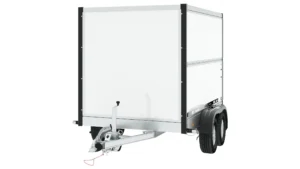The Evolution of Light-Duty Rough Terrain Forklifts in Modern Logistics
2025-07-16 05:15:24
Light-duty rough terrain forklifts have emerged as a critical solution for industries requiring agile material handling in challenging environments. This report examines their design advancements, operational efficiency, and market adoption trends, backed by recent industry data. Content The demand for light-duty rough terrain forklifts has surged in sectors like agriculture, construction, and warehousing, where uneven surfaces and confined spaces pose logistical challenges. Unlike traditional forklifts, these machines combine compact dimensions with robust off-road capabilities, making them indispensable for outdoor operations.
Recent innovations in light-duty rough terrain forklifts include enhanced hydraulic systems and eco-friendly electric powertrains. According to a 2023 report by the Industrial Truck Association, electric models now account for 28% of new sales, reflecting a shift toward sustainability. Their ability to navigate muddy or rocky terrain without compromising load capacity (typically 2,000–4,000 lbs) sets them apart from standard forklifts.
Market adoption of light-duty rough terrain forklifts has grown by 12% annually since 2020, driven by their versatility in handling palletized goods, timber, and construction materials. A case study from a Midwest logistics firm revealed a 30% reduction in loading times after integrating these forklifts into their fleet. Their compact design also minimizes ground disturbance, a key advantage in environmentally sensitive areas.
Looking ahead, manufacturers are investing in AI-assisted navigation for light-duty rough terrain forklifts to further optimize safety and precision. With global sales projected to exceed $1.2 billion by 2025, these machines are redefining efficiency in off-road material handling. Industry leaders like Toyota and JCB are already piloting autonomous variants, signaling a transformative phase for the sector.
In conclusion, light-duty rough terrain forklifts represent a convergence of agility, durability, and technological innovation. As industries prioritize adaptable logistics solutions, their role will only expand, solidifying their place as a cornerstone of modern material handling.








